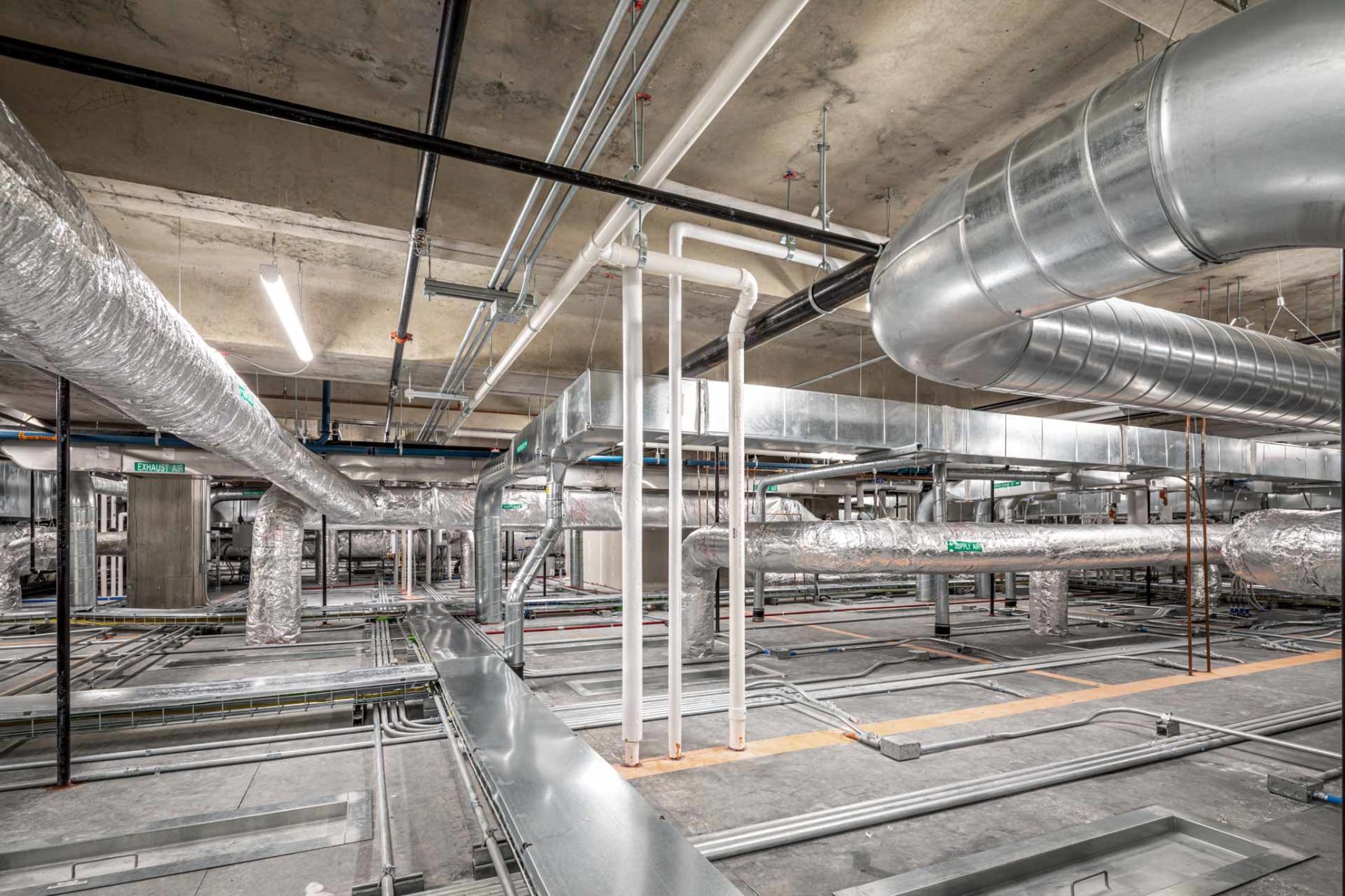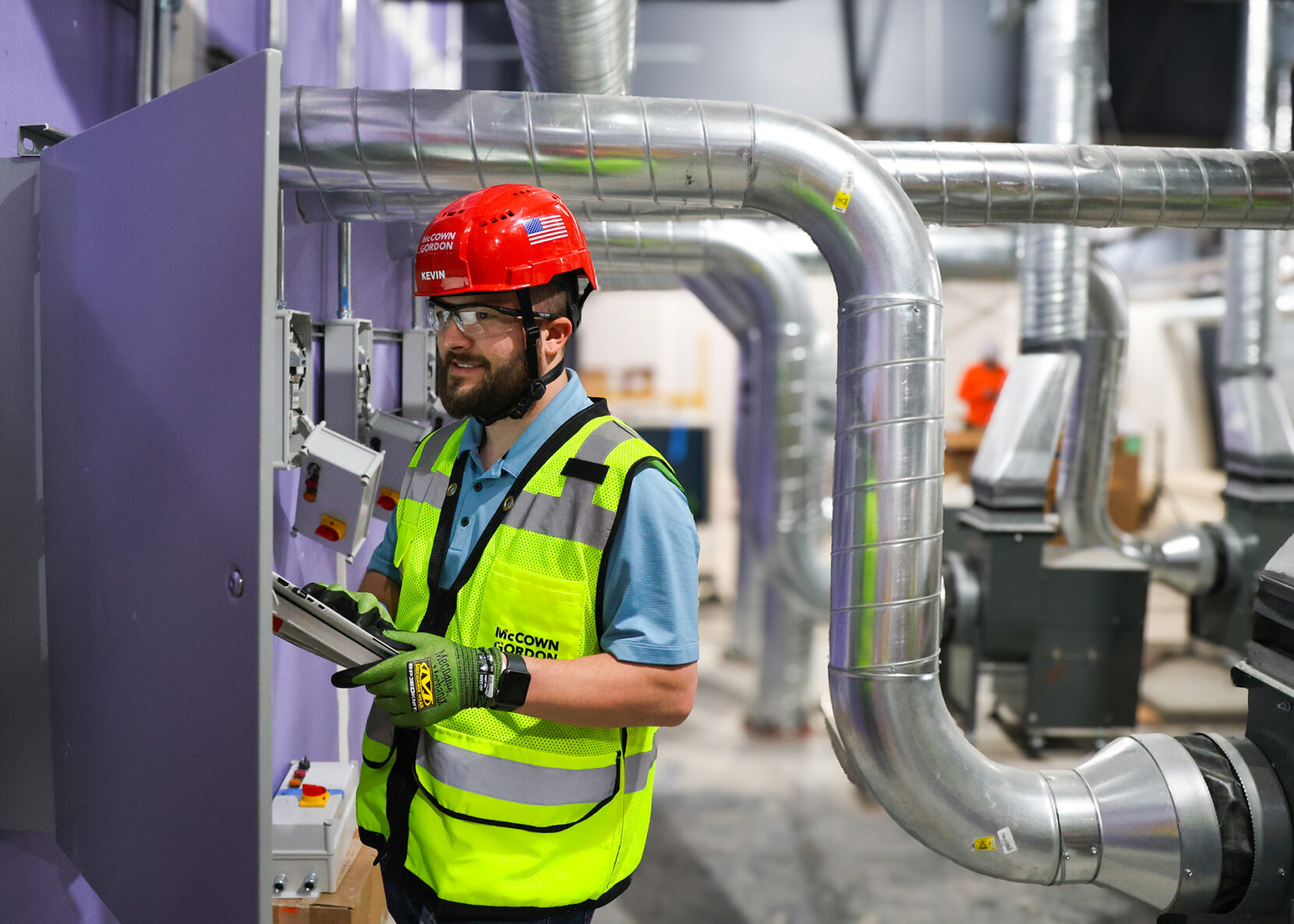The Importance of System Recalibration
Re-Commissioning with McCownGordon
Re-Commissioning (Re-Cx) is the process of re-evaluating and optimizing a building’s systems to ensure they operate efficiently and effectively. Unlike Retro-Commissioning (RCx), which focuses on buildings that have never been commissioned, Re-Cx applies to buildings that have undergone initial commissioning but require recalibration due to changes in operation, occupancy, or system performance

Why a building may need re-commissioning?
Over time, building systems drift from their original performance due to equipment degradation, operational adjustments, and occupancy changes. Re-Cx helps to:
- Restore building performance to optimal levels.
- Improve energy efficiency and reduce utility costs.
- Enhance occupant comfort and indoor air quality (IAQ).
- Extend the lifespan of mechanical and electrical systems.
- Reduce maintenance costs by proactively identifying and addressing issues.

Re-commissioning Key Benefits
- Energy Savings: Reduces energy consumption by 5-15% annually.
- Optimized Performance: Ensures systems operate as intended and at peak efficiency.
- Cost Savings: Identifies operational inefficiencies that lead to lower utility and maintenance costs.
- Extended Equipment Life: Reduces wear and tear on mechanical and electrical systems.
- Improved Indoor Environmental Quality: Enhances occupant comfort through better ventilation and temperature control.
Financial Impact
- Re-Cx implementation costs range from $0.15 – $0.75 per square foot, depending on the scope.
- Typical payback period is 1-3 years due to energy and operational cost savings.
- Non-energy benefits, such as increased occupant productivity and reduced maintenance, enhance overall ROI.

Jereme Nollett, PE, CCP, EMP
Commissioning Executive



